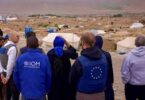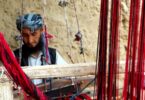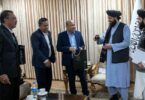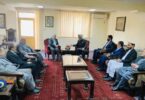Monitoring Desk
KABUL: The UN Secretary-General António Guterres will present his quarterly report “The situation in Afghanistan and its implication for international peace and security” to US Security Council.
United Nationals Assistance Mission for Afghanistan (UNAMA) which released the report Tuesday said the UN Security Council is scheduled to discuss the report on Thursday.
It said UNAMA chief Tadamichi Yamamoto, will deliver remarks at the March 8 meeting of the Security Council. The report provides an update on the activities of the UN in Afghanistan, including political, counter-narcotics, humanitarian, development and human rights efforts, since the issuance of the previous report, on 15 December 2017 as well as implementation of Kabul Process and coordination of development assistance
“The security situation remained highly unstable, as anti-government elements conducted a series of high-profile attacks in urban centres, dampening public morale and threatening to undermine confidence in the Government. Those incidents also heightened tensions between Afghanistan and Pakistan, as Afghan officials accused foreign of allowing “terrorist safe-havens” on Afghan territory. Civilian casualties remained very high throughout 2017, with children accounting for almost a third of the casualties, and with protracted fighting leading to thousands of new displacements. Lastly, there was little progress towards peace negotiations between the Government and the Taliban,” the report said.
It said the National Unity Government came under pressure owing to an extended impasse between the Presidential Palace and the Jamiat-e-Islami political party over the removal of a governor, adding the prolonged dispute dominated the political stage and threatened to undermine national unity.
The report, however, said Afghan government also took further steps to implement its anti-corruption strategy, and public revenue collection continued to increase thanks to improved administration services and enforcement.
It said Private sector growth, however, was constrained by continuing security volatility, regulatory uncertainty and corruption.
“Islamic State in Iraq and the Levant-Khorasan Province remained resilient, despite concerted operations by Afghan and international military forces. The group conducted several attacks against the civilian population and military targets, especially in Kabul and in the province of Nangarhar, and continued to engage in armed clashes against the Taliban as the two groups competed for control over territory.
Meanwhile, in the northern region, self-proclaimed Islamic State in Iraq and the Levant-Khorasan Province affiliates continued to engage in violent clashes against both Afghan Government and Taliban forces, suggesting that the group has expanded its geographical reach and begun to consolidate its presence outside the eastern part of the country.”
Meanwhile, US Deputy Assistant Secretary for South and Central Asian Affairs Alice G. Wells told journalists in Washington and that the Afghan president had not asked Taliban to surrender rather extended thema respectable peace proposal.
The US asked Taliban seriously think over the Afghan president’s peace offer.
A week ago, Afghan President Muhammad Ashraf Ghazni announced his peace strategy at Kabul Process conference and urged Taliban to come to negotiation table and announce ceasefire. He also offered to recognize Taliban as a political party.
There was no response by Taliban in this regard.






